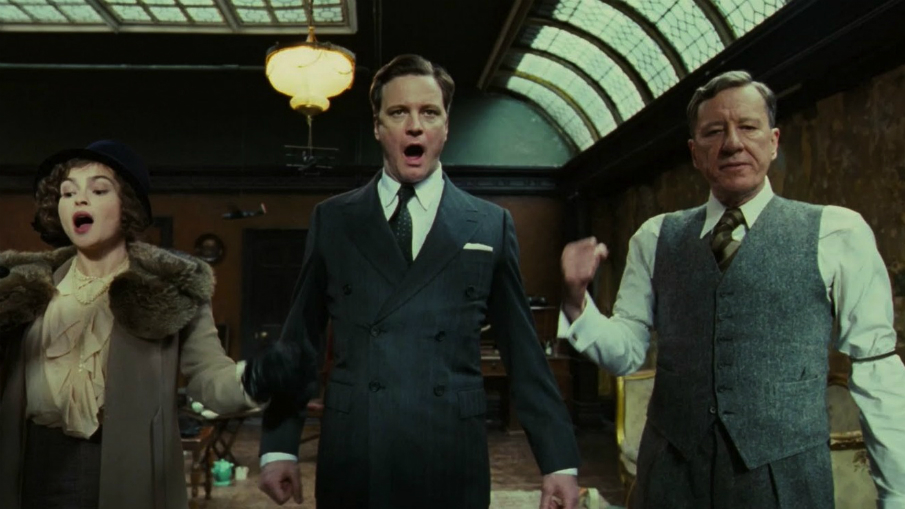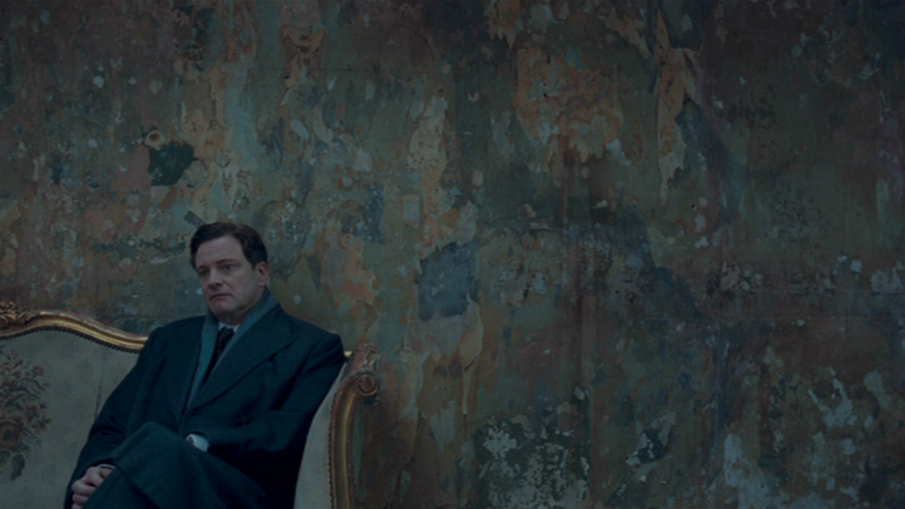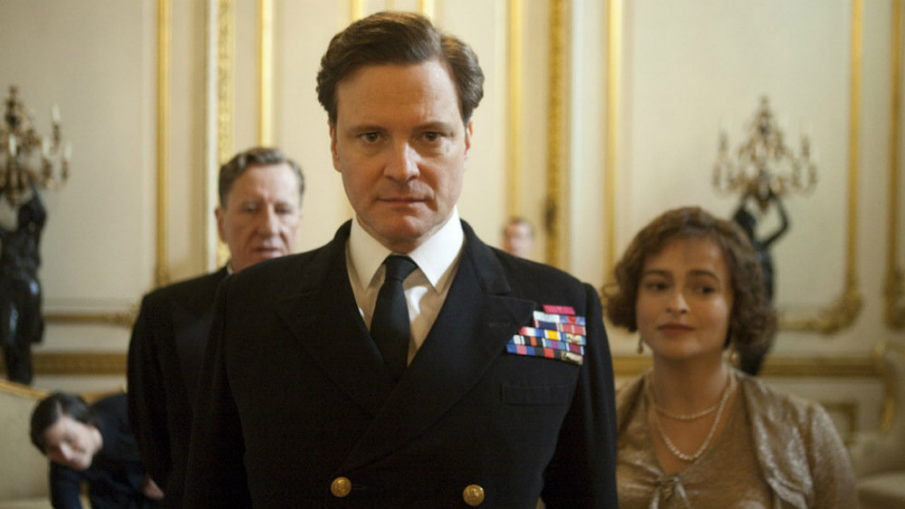The Social Network was the movie selected by critics as the best of 2010, perhaps more than any movie in recent history. It was almost a foregone conclusion going into award season that it was going to be the big winner. But it wasn’t. The King’s Speech emerged once we got to the actual industry awards, which felt like not only a celebration of a more traditional, emotional piece of art in line with many other BP winners, but a rejection of The Social Network.
This Oscar race also featured many crowd-pleasing favorites that grossed over $100 million, including Black Swan, True Grit, Inception, Toy Story 3 and The King’s Speech, while The Social Network and The Fighter were pretty darn close. There was an intangible energy with this year’s Oscars, and the Academy took a gamble on two young actors to host: James Franco and Anne Hathaway. It was a bit of a disaster, especially on Franco’s part, but considering most of the night’s winners were big box office hits, it was one of those years where the taste of the public felt consistent with the night.
So now, let’s get into how and why The King’s Speech cemented its place in Oscar history as the 2010 winner of Best Picture.
The Campaign
The King’s Speech, about King George VI (Colin Firth) and his attempts to overcome his stammer, premiered at the Telluride Film Festival on Sept. 6, 2010. Telluride has become a hotspot for future Best Picture nominees and winners in recent years, and The King’s Speech benefited greatly from the early exposure, with some calling for Oscars right from the start. It continue through the Toronto Film Festival where it won the highly coveted People’s Choice Award, cementing it as a dramatic crowd-pleaser. The film was bought by the infamous Weinstein Company, led by Harvey Weinstein, who used his aggressive tactics to make sure it was seen and liked by Academy voters. More on that later.
The movie debuted in a handful of theaters on Nov. 26 and expanded on Christmas Day. It became a big box office hit, notable due to its stuffy subject matter, raking in a whopping $138 million in the U.S. and over $400 million worldwide. While Firth was already earning Best Actor frontrunner buzz, the Best Picture conversation mostly revolved around The Social Network through the end of 2010. Still, The King’s Speech hung in there with 11 nominations at the Critics’ Choice Awards, seven noms at the Golden Globes and an astonishing 14 noms at BAFTA.
The King’s Speech was in the right position to strike big at the Oscars, as it wasn’t perceived as the frontrunner but it was the clear alternative. The film earned 12 Oscar nominations, the most of any in 2010, including Best Picture, Best Director for Tom Hooper, Best Actor for Firth, Best Supporting Actor for Geoffrey Rush, Best Supporting Actress for Helena Bonham Carter, Best Original Screenplay, Best Art Direction, Best Cinematography, Best Costume Design, Best Film Editing, Best Original Score and Best Sound Mixing.
The Other Nominees
Rarely do I genuinely like all of the nominees for Best Picture, but 2010 was a very special year. While I do quibble with The King’s Speech winning in the end, I can’t even say that it’s a particularly bad film. Neither are the nine nominees it shared the Best Picture category with, including 127 Hours, Black Swan, The Fighter, Inception, The Kids Are All Right, The Social Network, Toy Story 3, True Grit and Winter’s Bone.
Some of the smaller movies that probably wouldn’t have snuck into the Best Picture race under the five-nominee system include 127 Hours, The Kids Are All Right and Winter’s Bone. 127 Hours stars James Franco as Aron Ralston, a real-life explorer whose leg got trapped between a rock and a hard place. This was director Danny Boyle’s first film after hitting big at the Oscars with Slumdog Millionaire. Both The Kids Are All Right and Winter’s Bone came from female directors — Lisa Cholodenko for the former and Debra Granik for the latter. Both center on complicated women, with Kids centering on a lesbian couple played by Annette Bening and Julianne Moore and Winter’s Bone introducing the world to Jennifer Lawrence as a teenager protecting her family from eviction in the Ozarks. While none of these films were ever considered major frontrunners, The Kids Are All Right did at least walk away with a pair of Golden Globes.
Toy Story 3 and Inception were largely considered the populist choices of this lineup, considering they were the no. 1 and 6 movies of 2010 at the box office. Toy Story 3 became just third animated film to ever be nominated for Best Picture, while Inception proved that Christopher Nolan was here to stay as one of modern cinema’s most innovative directors. Inception walked away with the most Oscars in 2010, tying with The King’s Speech at 4. Meanwhile, Toy Story 3 took home two — Best Animated Feature and Best Original Song.
Above the indie films and the populist choices we had what would have probably been our top 5 if there was no expansion: Black Swan, The Fighter, The King’s Speech, The Social Network and True Grit. Darren Aronofsky finally hit big at the Oscars with Black Swan, a psychodrama starring Natalie Portman about a ballet dancer going mad. Portman was our Best Actress winner. Then we have The Fighter, which kicked off the Academy’s love of dysfunctional David O. Russell films and gave us our Best Supporting Actor and Actress winners, Christian Bale and Melissa Leo. True Grit was the Coen brothers continuation of the Western genre after winning in 2007 for No Country for Old Men. They had no such luck here even with 10 nominations, going home empty-handed.
The race ultimately came down to The King’s Speech vs. The Social Network. The Social Network, about the founding of Facebook, was one of those “how are they gonna do that?” kinds of movies that turns into an unexpected success, thanks to David Fincher’s focused, deeply-felt direction and Aaron Sorkin’s whip-smart dialogue. The film all but swept the critics awards and even some of the televised awards, including the Golden Globe and the Critics’ Choice. But it wasn’t enough to fend off our eventual winner.

The Final Vote
While the beginning of award season was absolutely in The Social Network‘s favor, it soon became evident that the industry loved The King’s Speech way more. The first sign of trouble was when The King’s Speech won at the Producers Guild of America (PGA), which had lined up with the Best Picture winner the previous three years. This led into the double whammy of the Directors Guild of America (DGA) Award win for Tom Hooper and the Screen Actors Guild (SAG) Award for the film’s ensemble. By this point, the momentum had swung completely in the direction of The King’s Speech, and then BAFTA predictably gave it its Best Film prize.
All along the way, we had Weinstein forming this narrative that The King’s Speech was the movie that “makes you feel,” compared to the intellectual cynicism of The Social Network. Weinstein’s tricks have worked multiple times before, and they worked again here. The burden of being the frontrunner early on is like what sank The Social Network, as many voters who hadn’t seen it yet were probably expecting an unparalleled cinematic masterpiece and while I and many others believe it to be, it does not have the kind of universal appeal on an emotional level. Compare that to The King’s Speech with its lovable characters and mushy sentimentality and its no wonder the classically old-fashioned choice won over the youth-oriented punk option.
The King’s Speech ultimately won Best Picture alongside Best Director for Hooper, Best Actor for Firth and Best Original Screenplay for David Seidler.
The Film Itself
The artistic discussion around The King’s Speech often revolves around it winning Best Picture over The Social Network. It is never fair to anyone to rate a film on its merits because of the awards it won or lost, and so I will do my best to remove its success from the conversation. The King’s Speech absolutely works on the level of pulling your heartstrings and delivering a solidly entertaining yet informative look at King George’s struggles. While it primarily takes place in drab interior locations, Firth, Geoffrey Rush and Helena Bonham Carter really bring the entire affair to life. Firth in particular delivers a conflicted performance, demonstrating King George’s insecurities surrounding his stutter while doing his best to come off as a commanding leader.
A film is only as good as its director, though, and Hooper’s direction ultimately leaves too much to be desired. There is little to no visual flair in this thing and more often than not the film relies on its great actors to take command of the story. The story itself proceeds in such an unspectacular way through dull montages and self-important monologues that I’m not left with any sense of why this all matters, or why it should resonate with a modern audience. What I am left with at the end of The King’s Speech’s 119 minutes is a decent experience but nothing to examine further, nothing to think about, no need to rewatch to uncover hidden meanings. It simply exists.

Will The King’s Speech Stand the Test of Time?
I think by now it’s clear that The King’s Speech has not exactly held up as a cinematic achievement, especially with the heavy Oscar crown on its head. When I look at the decision to award The King’s Speech the best film of 2010, I see short-sighted voters simply checking off the movie they liked, without taking much account of how it is truly an outstanding piece of filmmaking. It’s like American Hustle, a movie that is a blast to watch for two hours but once its over the feeling evaporates. There is something to be said for light-hearted escapism, but I think The King’s Speech is aspiring to be more meaningful than that, commentating on the tenacity of the human spirit and showing that even those who seem to have it the most together are going through struggles. A movie with those kinds of themes shouldn’t be so ephemeral in feeling.
There are multiple Best Picture nominees from 2010 that have stood the test of time and will likely continue to do so, including The Social Network, Inception, Toy Story 3 and Black Swan. The King’s Speech, sadly, is not one of them.
What do you think? To watch The King’s Speech for yourself, it is available to rent or buy on Amazon Instant Video, DVD or Blu-ray through the following links:




